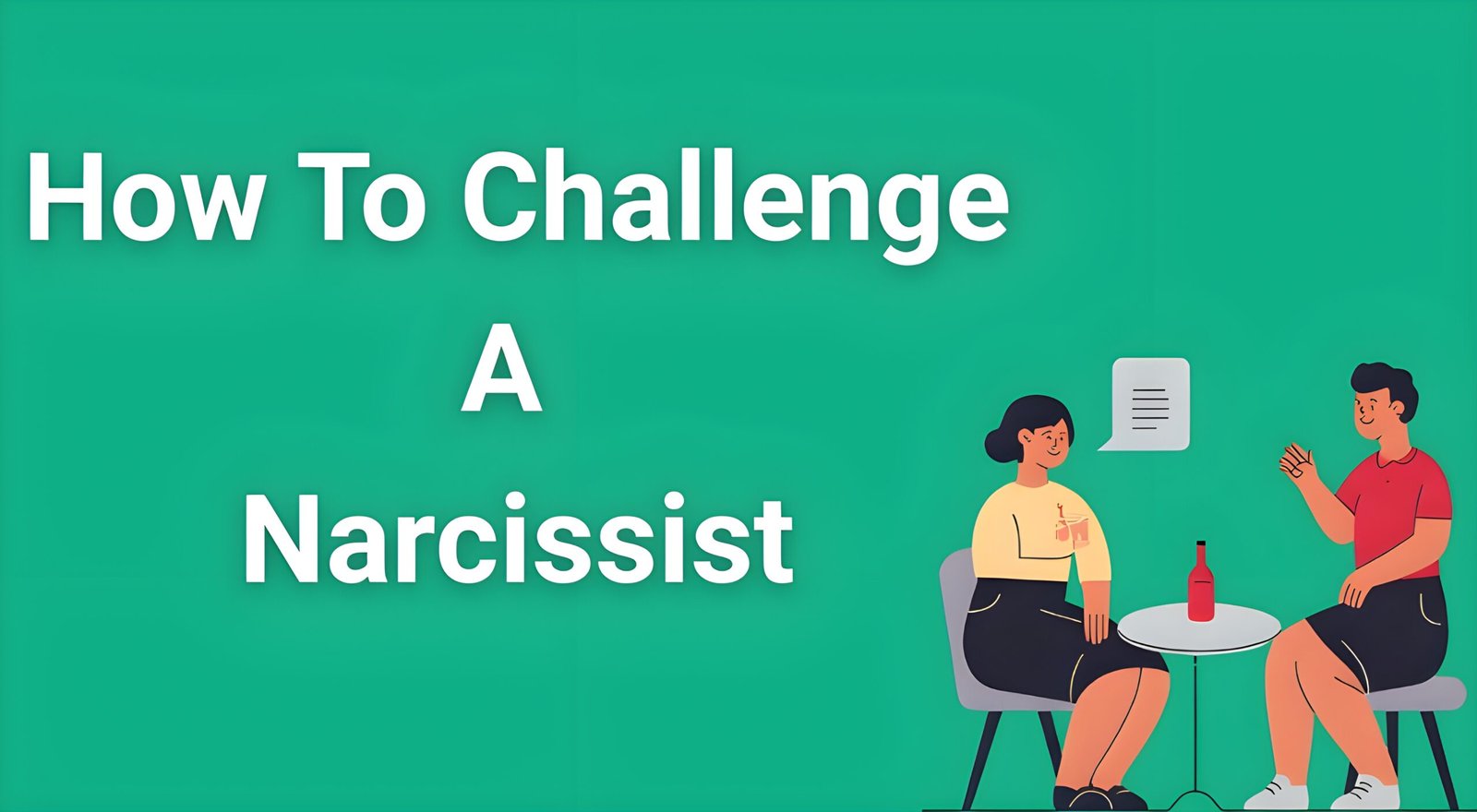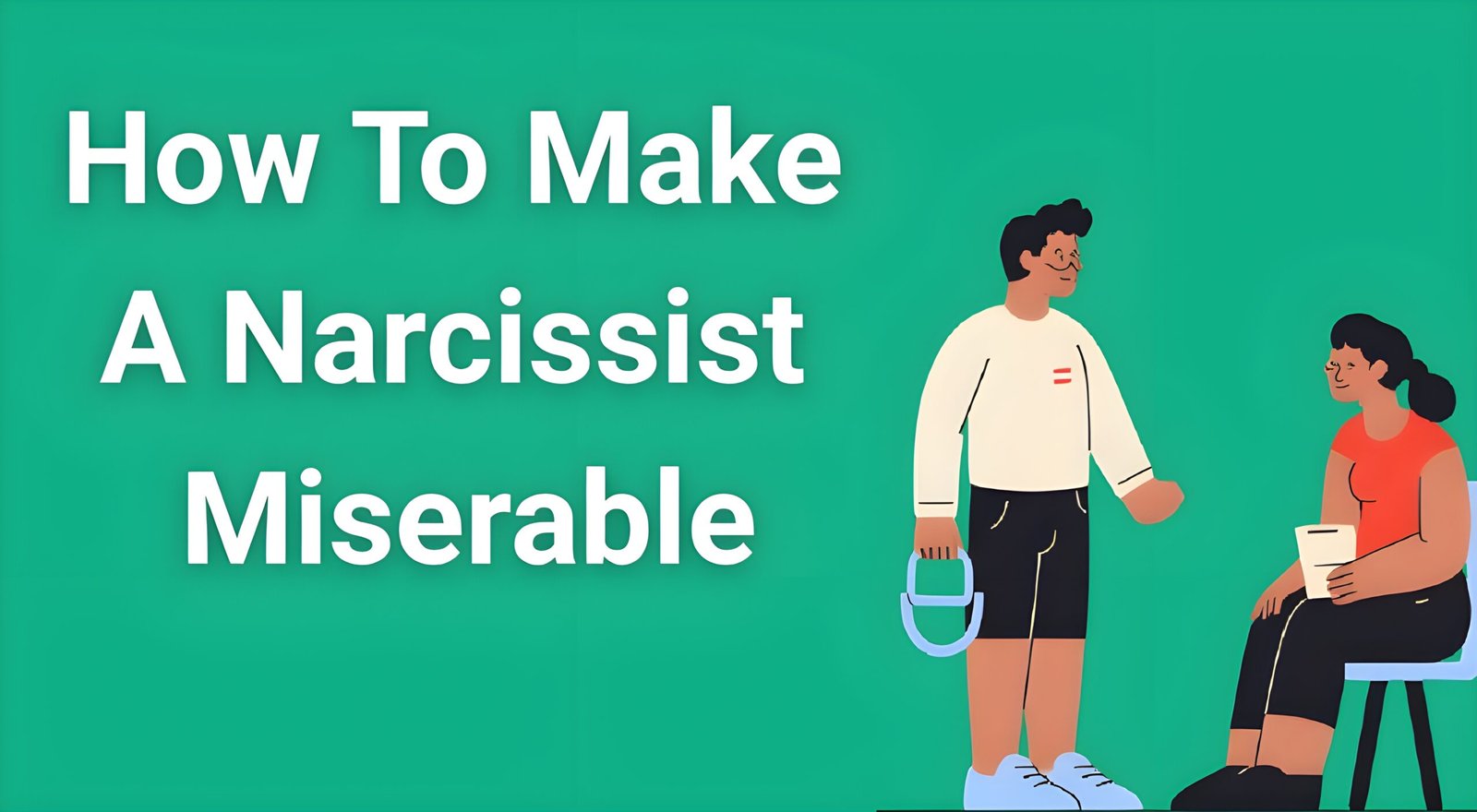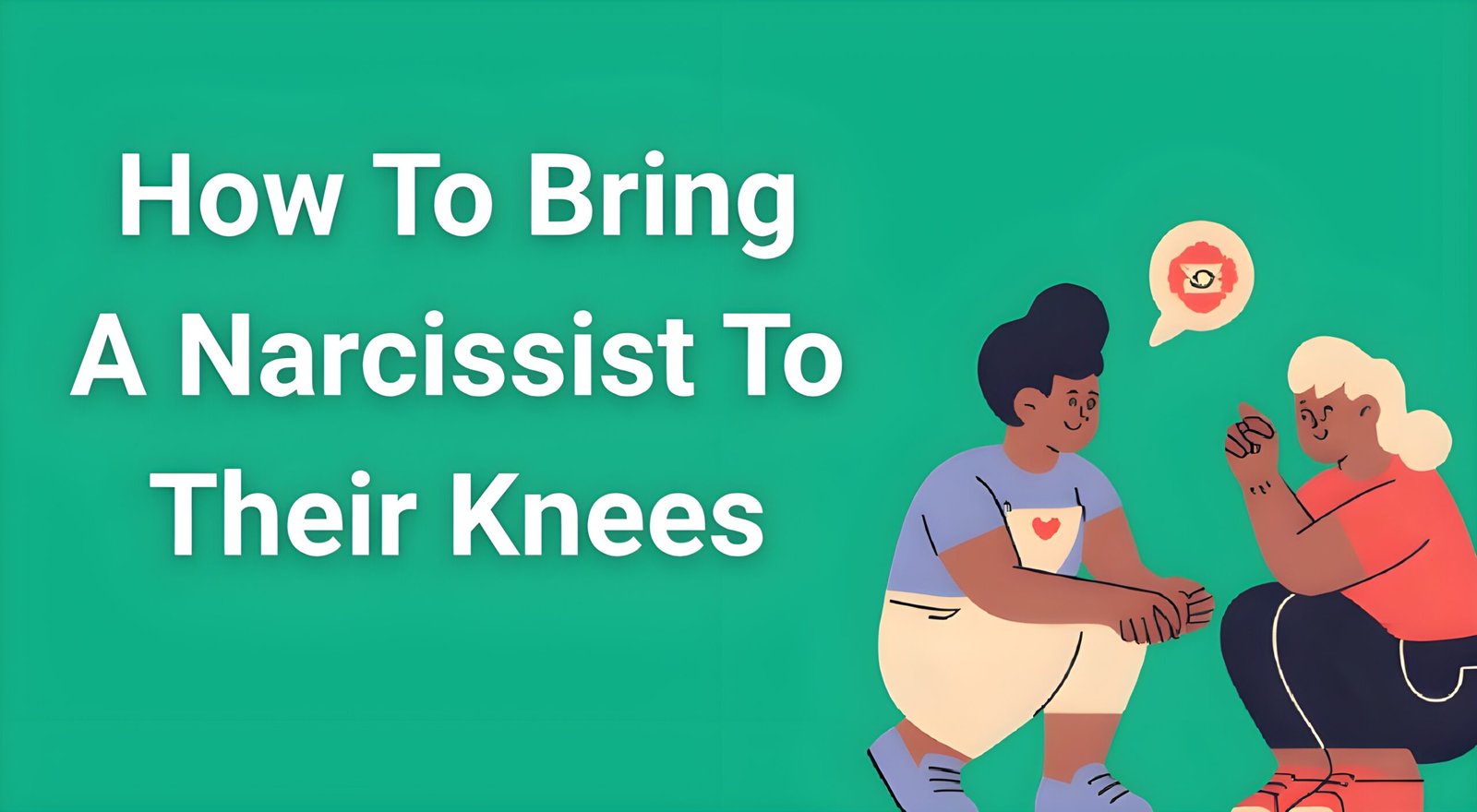Learning how to challenge a narcissist requires understanding both the psychological dynamics at play and the potential risks involved. Whether you’re dealing with a narcissistic partner, family member, colleague, or friend, the decision to confront their behavior should never be taken lightly. This comprehensive guide explores evidence-based strategies that prioritize your safety while helping you navigate these complex interactions effectively.
- Understanding What Happens When You Challenge a Narcissist
- The Foundation: Building Your Inner Strength Before Challenging
- Strategy 1: The Strategic Boundary Approach
- Strategy 2: The Documentation Method
- Strategy 3: The Calm Confrontation Technique
- Strategy 4: The Professional Intervention Strategy
- Strategy 5: The Expectation Management Approach
- Strategy 6: The Strategic Disengagement Method
- Strategy 7: The Alliance Building Approach
- When Challenging Becomes Dangerous
- The Long-Term Perspective on Challenging Narcissists
- Frequently Asked Questions
- Moving Forward with Confidence
Many people find themselves walking on eggshells around narcissistic individuals, constantly questioning their own reality and wondering if they’re overreacting. The truth is, challenging narcissistic behavior is possible, but it requires careful planning, realistic expectations, and a strong foundation of self-protection strategies.
Understanding What Happens When You Challenge a Narcissist
Before diving into specific strategies, it’s crucial to understand the psychological mechanics of narcissistic behavior and what typically occurs when these individuals face confrontation. Narcissists operate from a place of emotional immaturity and fragile self-esteem, despite their outward displays of confidence and superiority.
When challenged, narcissists typically respond with what mental health professionals call “narcissistic injury.” This psychological wound triggers their defense mechanisms, which can manifest in several ways:
Rage and Retaliation: The most common response is an explosive emotional reaction designed to shut down the challenge and restore their sense of superiority.
Gaslighting Intensification: They may deny reality, question your memory, or make you doubt your perceptions to maintain control over the narrative.
Victim Playing: Many narcissists will flip the script, positioning themselves as the wounded party while painting you as the aggressor.
Smear Campaigns: In more severe cases, they may attempt to damage your reputation with others to restore their image and punish you for the challenge.
Understanding these potential responses helps you prepare mentally and emotionally for what may come after you decide to challenge their behavior. Some people asked me how to annoy or irritate a narcissist, i always told them, this is not good and you have to get safety steps first.
The Foundation: Building Your Inner Strength Before Challenging
The most critical aspect of how to challenge a narcissist successfully lies in your own psychological preparation. Without a solid foundation of self-awareness and emotional resilience, any confrontation is likely to leave you more drained and confused than before.
Self-Validation as Your Shield
Self-validation means trusting your own perceptions, feelings, and experiences regardless of external pressure to doubt them. Narcissists are experts at making others question their reality, so developing unshakeable confidence in your own observations becomes your primary protection.
Start by keeping a private journal of interactions that feel uncomfortable or confusing. Document specific behaviors, conversations, and your emotional responses. This practice helps you maintain clarity about what actually happened versus how the narcissist might later reframe events.
Emotional Regulation Techniques
Challenging a narcissist requires maintaining emotional control even when they attempt to provoke strong reactions. Practice deep breathing exercises, mindfulness techniques, and grounding strategies that you can use during difficult conversations.
Remember that narcissists often feed off emotional reactions. The calmer and more composed you remain, the less satisfying the interaction becomes for them, which can actually protect you from escalation.
Building Your Support Network
Never attempt to challenge narcissistic behavior in isolation. Build relationships with trusted friends, family members, or mental health professionals who can provide perspective and support. Having external validation for your experiences counteracts the narcissist’s attempts to make you question your reality.
Strategy 1: The Strategic Boundary Approach
One of the most effective ways to challenge a narcissist involves setting and enforcing clear boundaries rather than engaging in direct confrontation about their character or behavior patterns.
Define Your Non-Negotiables
Start by identifying specific behaviors you will no longer tolerate. Instead of making broad statements like “you’re too controlling,” focus on concrete actions: “I will not continue conversations where I’m being interrupted or shouted at.”
Communicate Consequences Clearly
When setting boundaries with narcissistic individuals, you must be prepared to follow through consistently. Vague threats or idle ultimatums actually reinforce their belief that they can manipulate you.
For example: “When you raise your voice at me, I will leave the room and we can continue this conversation when you’re ready to speak respectfully.”
The Gray Rock Technique
Sometimes the most powerful challenge to narcissistic behavior is refusing to provide the emotional reaction they seek. The gray rock method involves becoming as uninteresting and unresponsive as possible during interactions.
This doesn’t mean becoming completely passive, but rather offering minimal emotional engagement while still maintaining your boundaries. Respond with brief, factual statements and avoid sharing personal information that could be used against you later.
Strategy 2: The Documentation Method
Building a factual record of narcissistic behavior serves multiple purposes in how to challenge a narcissist effectively. Documentation provides you with concrete evidence that counters gaslighting attempts and can be crucial if the situation escalates to requiring external intervention.
What to Document
Keep detailed records of specific incidents including dates, times, locations, witnesses present, and exact words spoken when possible. Focus on observable behaviors rather than interpretations or emotional responses.
Save text messages, emails, and voicemails that demonstrate manipulative or abusive patterns. These digital communications often reveal the narcissist’s true character when they believe they can’t be held accountable.
How Documentation Empowers Your Challenge
Having concrete evidence transforms how you can challenge narcissistic behavior. Instead of engaging in “he said, she said” arguments, you can reference specific incidents with precise details.
This approach also helps you maintain confidence in your own perceptions when the narcissist inevitably attempts to rewrite history or claim events never happened.
Strategy 3: The Calm Confrontation Technique
Direct confrontation about specific behaviors can be effective when done strategically and with proper safety measures in place. The key lies in timing, setting, and your approach to the conversation.
Choose Your Moment Wisely
Never attempt to challenge a narcissist when they’re already agitated, under stress, or in public settings where they might feel the need to maintain their image through aggressive defensiveness.
Look for moments when they’re in relatively good moods and you have privacy for the conversation. However, ensure someone knows where you are and when to expect you back if there’s any history of escalation.
Use “I” Statements and Specific Examples
Frame your challenge around your own experience rather than making accusations about their character. “I felt dismissed when you interrupted me three times during our meeting” is more effective than “you never listen to anyone.”
This approach makes it harder for them to deflect responsibility or claim you’re attacking their personality rather than addressing specific behaviors.
Stay Focused on the Issue
Narcissists excel at derailing conversations by bringing up past grievances, attacking your character, or introducing irrelevant topics. Prepare yourself to repeatedly redirect the conversation back to the specific issue you’re addressing.
Practice phrases like “We’re discussing what happened yesterday, not last month” or “I’m willing to address that separately, but right now we need to resolve this specific situation.”
Strategy 4: The Professional Intervention Strategy
Sometimes the most effective way to challenge narcissistic behavior involves bringing in neutral third parties who can’t be manipulated or dismissed as easily as you might be.
Workplace Situations
If dealing with a narcissistic colleague or supervisor, document everything and work within your company’s established channels. HR departments and management structures provide formal processes that narcissists must respect or face consequences.
Family Therapy or Mediation
For family relationships, suggesting professional mediation or therapy can provide a structured environment where narcissistic manipulation tactics are less effective. Mental health professionals trained in personality disorders can navigate these dynamics more skillfully than family members.
Legal Consultation When Necessary
In severe cases involving harassment, financial abuse, or threats, consulting with legal professionals may be the most appropriate form of challenging narcissistic behavior. This approach is particularly important in divorce situations or when protecting children from narcissistic abuse.
Strategy 5: The Expectation Management Approach
One of the most important aspects of how to challenge a narcissist involves adjusting your expectations about possible outcomes. Understanding the limitations of what confrontation can achieve protects you from disappointment and helps you make more strategic decisions.
They Won’t Change Fundamentally
Accept that challenging narcissistic behavior is about protecting yourself and setting boundaries, not about creating genuine remorse or lasting behavioral change in the narcissist.
Narcissistic personality patterns are deeply ingrained and rarely change through confrontation alone. Professional therapy specifically designed for personality disorders offers the only real hope for meaningful change, and even then, the individual must genuinely want to change.
Focus on Your Own Empowerment
The true victory in learning how to challenge a narcissist lies in reclaiming your own power and refusing to accept unacceptable treatment. Success means maintaining your boundaries, protecting your emotional wellbeing, and living authentically despite their attempts at control.
Measure Success Differently
Rather than measuring success by whether the narcissist apologizes or changes, focus on whether you’ve clearly communicated your boundaries, protected yourself from further harm, and maintained your integrity throughout the process.
Strategy 6: The Strategic Disengagement Method
Sometimes the most powerful challenge to narcissistic behavior involves withdrawing your participation in their drama and manipulation games. This strategy recognizes that engaging with narcissistic tactics often reinforces them.
Recognize Manipulation Attempts
Learn to identify common narcissistic manipulation tactics such as love bombing, future faking, triangulation, and projection. Once you can name these behaviors, you’re less likely to be drawn into responding emotionally.
Refuse to Play Their Games
When narcissists attempt to engage you in arguments, competitions for victimhood, or elaborate justifications for their behavior, simply refuse to participate. Responses like “I see it differently” or “I’m not going to debate this” can be surprisingly effective.
Strategic Information Limitation
Protect yourself by limiting what personal information you share with narcissistic individuals. They often use intimate knowledge about your vulnerabilities, fears, and desires as weapons during conflicts.
Strategy 7: The Alliance Building Approach
Narcissists thrive in situations where they can isolate their targets and control the narrative. Building alliances with other people who understand the situation can provide crucial support and validation.
Connect with Other Survivors
Finding others who have dealt with similar narcissistic behavior helps you understand that the confusing dynamics you’re experiencing are not unique to your situation. This validation can be incredibly empowering when preparing to challenge unacceptable behavior.
Professional Support Systems
Mental health professionals who specialize in narcissistic abuse can provide both emotional support and practical strategies tailored to your specific situation. They can help you process the complex emotions involved and develop personalized approaches for challenging narcissistic behavior safely.
If you’re struggling to understand whether you’re dealing with narcissistic abuse or need expert validation of your experiences, specialized assessment services can provide clarity. Professional analysis helps distinguish between normal relationship conflicts and genuine narcissistic manipulation patterns, giving you confidence in your perceptions and decisions about how to proceed.
Trauma-Informed Recovery Resources
Breaking free from narcissistic dynamics often requires addressing the psychological impact of prolonged manipulation and emotional abuse. Structured recovery programs designed specifically for narcissistic abuse survivors can provide step-by-step guidance for healing and reclaiming your autonomy.
These programs typically address the neurological addiction-like bonds that form with narcissistic individuals, helping explain why “just leaving” or “just standing up to them” feels impossible despite logical understanding of the situation.
For those who cannot immediately leave narcissistic relationships due to financial, legal, or family constraints, specialized survival strategies can help protect your mental health while you build toward eventual freedom.
When Challenging Becomes Dangerous
It’s crucial to recognize when challenging narcissistic behavior crosses into dangerous territory. Some situations require immediate professional intervention rather than personal confrontation strategies.
Red Flag Indicators
Physical threats, destruction of property, stalking behaviors, threats against children or pets, or escalating rage that seems uncontrolled all indicate that direct challenging may not be safe.
Financial abuse, where the narcissist controls all resources and threatens economic destruction, requires specialized legal and financial planning rather than direct confrontation.
Safety Planning Essentials
If you’re in a potentially dangerous situation, develop a safety plan before attempting any form of challenge. This includes identifying safe places to go, people who can help, important documents to protect, and emergency contact information.
Consider consulting with domestic violence resources even if you don’t consider your situation “domestic violence” in the traditional sense. These professionals understand narcissistic abuse dynamics and can provide valuable safety planning assistance.
The Long-Term Perspective on Challenging Narcissists
Understanding how to challenge a narcissist effectively requires accepting that this is often a long-term process rather than a single conversation or confrontation. Building the skills and emotional resilience needed takes time and practice.
Developing Emotional Immunity
Over time, consistent boundary enforcement and emotional regulation practice can help you develop what some call “emotional immunity” to narcissistic manipulation tactics. This doesn’t mean becoming cold or uncaring, but rather developing the ability to respond thoughtfully rather than reactively.
Building Your Authentic Self
One of the most powerful long-term effects of learning to challenge narcissistic behavior is rediscovering and strengthening your authentic self. Many people who have dealt with narcissistic abuse report feeling like they’ve lost touch with their own preferences, opinions, and desires.
The process of setting boundaries and challenging unacceptable behavior helps reconnect you with your own values and identity, independent of the narcissist’s opinions or approval.
Creating Healthier Relationship Patterns
Successfully challenging narcissistic behavior often reveals patterns in your other relationships as well. You may discover that learning to set boundaries with the narcissist helps you communicate more effectively and authentically in all your relationships.
Frequently Asked Questions
Q: What happens if challenging a narcissist makes them worse?
A: Escalation is common initially, as narcissists test your resolve. However, consistent boundary enforcement often leads to them seeking easier targets. Document everything and have safety plans in place.
Q: Can challenging a narcissist ever lead to positive change in them?
A: While fundamental personality change is rare without intensive professional help, some narcissists may modify specific behaviors when consistently faced with real consequences.
Q: Is it worth challenging a narcissist if I have to see them regularly?
A: Setting boundaries is almost always worthwhile for your own wellbeing, but the strategies may need to be more subtle and focused on self-protection rather than confrontation.
Q: How do I know if I’m dealing with true narcissistic behavior or just normal selfishness?
A: Narcissistic behavior typically involves consistent patterns of exploitation, lack of empathy, grandiosity, and manipulation that persist across different situations and relationships.
Q: Should I try to challenge a narcissistic parent as an adult?
A: Adult children of narcissistic parents often benefit from professional guidance when deciding how to set boundaries. The approach depends heavily on your specific circumstances and safety considerations.
Moving Forward with Confidence
Learning how to challenge a narcissist safely and effectively represents a significant step in reclaiming your personal power and protecting your emotional wellbeing. Remember that the goal isn’t to change the narcissist, but to protect yourself and maintain your integrity while navigating these difficult relationships.
The strategies outlined here require practice and patience to implement effectively. Start with smaller boundaries and work your way up to more significant challenges as you build confidence and experience. Most importantly, prioritize your safety and wellbeing throughout this process.
With the right knowledge, support, and preparation, you can learn to challenge narcissistic behavior while protecting yourself from the emotional and psychological damage these individuals often inflict. Your journey toward authentic, healthy relationships begins with refusing to accept unacceptable treatment, regardless of who’s offering it.






